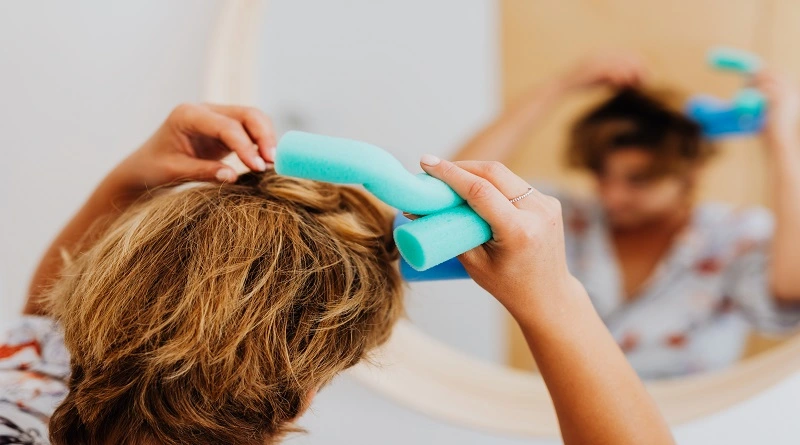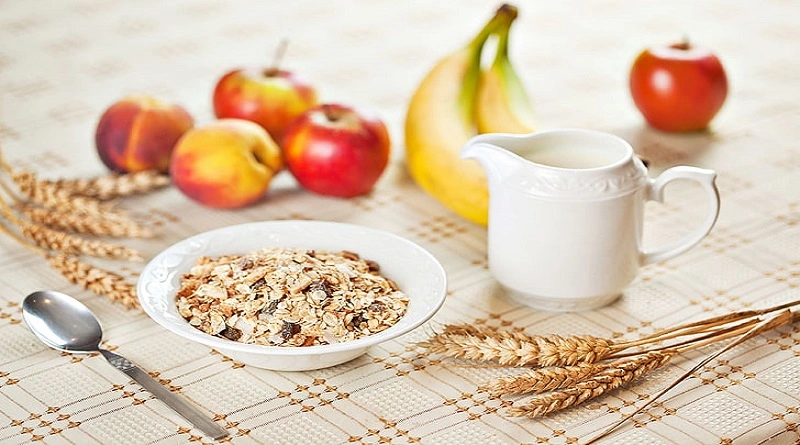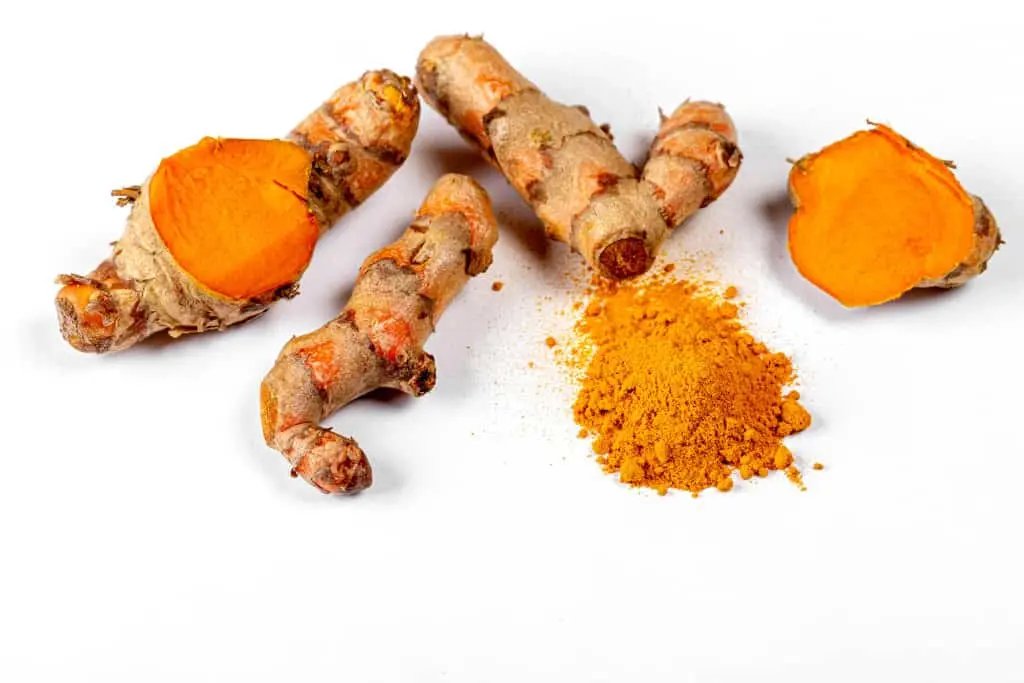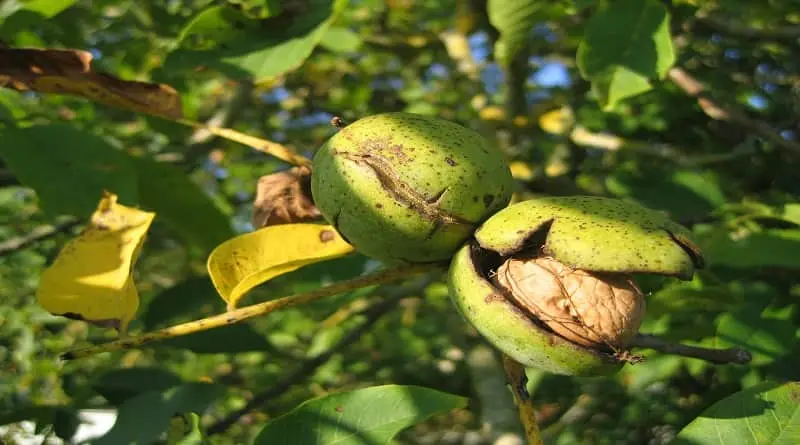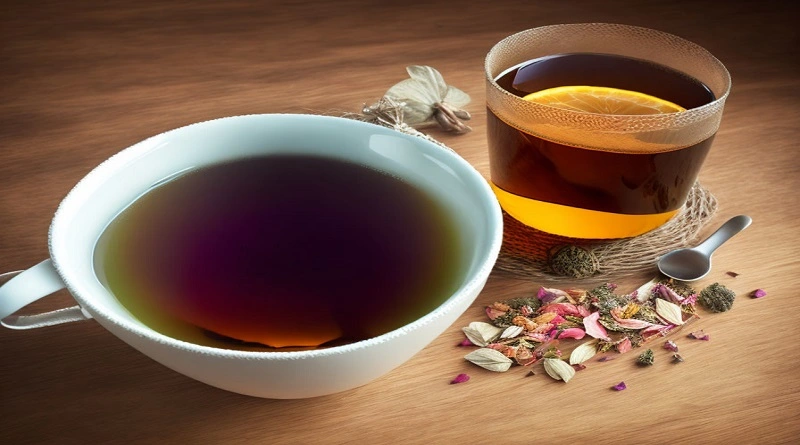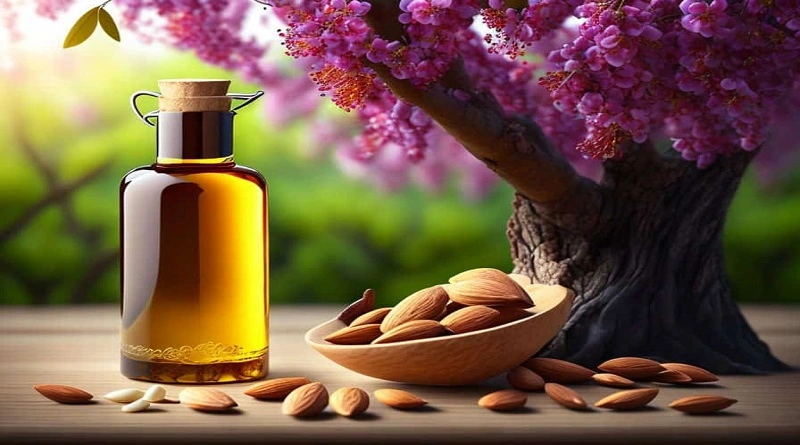Introduction
When it comes to hair health, various factors contribute to it. One of the most important factors is the care and maintenance routine of the hair. In this article, we will discuss the role of oiling and massaging in hair health and also the 25 best herbal oils to be used to improve hair health.
Importance of Hair Oiling
Hair oiling is the practice of applying oil to the scalp and hair strands. Oiling provides numerous benefits to the hair. Firstly, it provides essential nutrients to the hair and scalp. The oil nourishes the hair follicles and promotes hair growth. Secondly, oiling helps to strengthen the hair strands and prevents breakage. It also helps to reduce frizz and gives the hair a healthy shine. Lastly, oiling helps to improve blood circulation to the scalp, which is important for maintaining healthy hair.
There are many types of hair oils available in the market. Each of these oils has unique properties that benefit the hair in different ways. Here we will discuss the 25 best herbal oils for hair and scalp.
Benefits of Hair Massaging
Hair massaging is the practice of applying pressure to the scalp using the fingertips. Massaging helps to stimulate blood circulation to the scalp and hair follicles. This increased blood flow provides essential nutrients to the hair follicles, promoting healthy hair growth.
Apart from promoting hair growth, massaging also helps to reduce stress and tension. This is because the pressure applied during the massage helps to relax the muscles on the scalp. A relaxed scalp is less prone to hair fall and breakage.
How to Oil and Massage Your Hair
Now that we know the importance of oiling and massaging, let’s discuss how to do it properly.
Hair Oiling
Choose the right oil: As mentioned earlier, there are many types of hair oils available in the market. Choose an oil that suits your hair type and scalp condition.
Warm the oil: Before applying the oil, warm it slightly. This helps the oil to penetrate the scalp and hair strands more effectively.
Section your hair: Divide your hair into sections. This makes it easier to apply the oil evenly.
Apply the oil: Apply the oil to the scalp using your fingertips. Massage the oil in circular motions, making sure to cover the entire scalp.
Apply to hair strands: Once the scalp is covered, apply the remaining oil to the hair strands. Make sure to cover the entire length of the hair.
Leave it on: Leave the oil on for at least an hour, or overnight for better results.
Wash off: After the recommended time, wash your hair using mild shampoo and conditioner.
Best Oiling Time
The best time to oil your hair depends on your hair type, lifestyle, and personal preferences. Here are some general guidelines to follow:
For Dry and Damaged Hair
If you have dry or damaged hair, it’s best to oil your hair at least twice a week, preferably at night before going to bed. This allows the oil to deeply penetrate your scalp and hair, providing maximum nourishment and hydration.
For Normal Hair
If you have normal hair that is not too dry or oily, you can oil your hair once a week, preferably on a weekend when you have more time to relax and let the oil work its magic.
For Oily Hair
If you have oily hair, it’s best to oil your hair once every two weeks or so, and only apply oil to your hair and not your scalp. This helps to balance your scalp’s natural oil production and prevent excess oil buildup.
Hair Massaging
Sit comfortably: Sit in a comfortable position with your back straight.
Use your fingertips: Use your fingertips to apply pressure to the scalp.
Use circular motions: Use circular motions to massage the scalp. Start at the base of the neck and work your way up to the crown of the head.
Apply pressure: Apply enough pressure to feel the scalp move slightly. Do not use too much pressure as this can damage the hair follicles.
Massage for 10-15 minutes: Massage for 10-15 minutes, or until you feel relaxed.
Repeat twice a week: Repeat the process twice a week for best results.
Best Time to Massage
Like oiling, the best time to massage your hair depends on your hair type and personal preferences. Here are some general guidelines to follow:
For Dry and Damaged Hair
If you have dry or damaged hair, it’s best to massage your scalp for at least 10-15 minutes before shampooing your hair. This helps to stimulate blood flow to your hair follicles and distribute natural oils throughout your hair, providing maximum nourishment and hydration.
For Normal Hair
If you have normal hair, you can massage your scalp for 5-10 minutes before shampooing your hair once or twice a week. This helps to promote blood circulation and keep your hair healthy and strong.
For Oily Hair
If you have oily hair, it’s best to massage your scalp for only a few minutes before shampooing your hair once or twice a week. This helps to remove excess oil and keep your hair clean and fresh.
Before Shampooing
Another great time to oil and massage your hair is before shampooing. This can help to nourish and protect your hair while also preventing damage from harsh chemicals found in many shampoos. Simply apply your chosen oil to your hair and massage it into your scalp and hair strands. Leave the oil in your hair for at least 30 minutes, or even overnight, before washing it out with a gentle shampoo.
After Shampooing
You can also apply oil to your hair after shampooing. This can help to lock in moisture and protect your hair from damage. After washing your hair, gently pat it dry with a towel and apply a small amount of oil to the ends of your hair, working your way up toward your scalp. Be sure to use a light touch, as too much oil can leave your hair feeling greasy.
As Needed
In addition to the above times, you can also oil and massage your hair as needed. This may be particularly helpful for those with dry or damaged hair, or for those who use heat styling tools frequently. Apply a small amount of oil to your hair and massage it into your scalp and strands whenever your hair is feeling dry or dull.
Tips for Effective Oil and Massage Techniques
Now that you know the best times to oil and massage your hair, here are some tips for effective techniques:
Use the Right Oil
Different hair types require different types of oil. For example, coconut oil is great for dry and damaged hair, while olive oil is great for normal hair. Be sure to choose the right oil for your hair type and avoid using too much oil, as this can weigh down your hair and make it look greasy.
Use Gentle Massaging Techniques
When massaging your scalp, use gentle circular motions with your fingertips, not your nails. Avoid rubbing your hair vigorously, as this can damage your hair and cause breakage.
Cover Your Hair with a Warm Towel
After applying oil to your hair, cover your hair with a warm towel
25 best herbal oils for hair health
Herbal oils are a great way to nourish and strengthen your hair naturally. Here are 25 of the best herbal oils for hair health:
Olive Oil
Olive oil has been used for centuries as a natural remedy for hair and scalp health. It’s rich in antioxidants, vitamins, and healthy fats that can nourish and strengthen your hair from the inside out. In this article, we’ll explore the many benefits of olive oil for your hair and scalp, and how you can incorporate it into your hair care routine.
Benefits of Olive Oil for Hair Health
Moisturizes Dry Hair
If you have dry or damaged hair, olive oil can be an excellent natural moisturizer. The fatty acids in olive oil can penetrate the hair shaft and provide hydration, which can help reduce frizz and breakage. To use olive oil as a moisturizer, warm up a small amount of oil in your hands and apply it to your hair, focusing on the ends. Leave it in for at least 30 minutes, or overnight, and then wash it out with a gentle shampoo.
Strengthens Hair
Olive oil is rich in vitamin E, which is an essential nutrient for hair health. Vitamin E can help improve circulation to the scalp, which can promote hair growth and prevent hair loss. Additionally, the healthy fats in olive oil can help strengthen hair strands, reducing breakage and split ends. To use olive oil for hair strength, massage a small amount of oil into your scalp and hair, leave it in for at least 30 minutes, and then wash it out with a gentle shampoo.
Promotes Scalp Health
A healthy scalp is essential for healthy hair growth, and olive oil can help promote scalp health in several ways. Firstly, the antioxidants in olive oil can help reduce inflammation on the scalp, which can be a common cause of dandruff and other scalp conditions. Additionally, the fatty acids in olive oil can help unclog hair follicles, which can improve circulation and promote healthy hair growth. To promote scalp health with olive oil, warm up a small amount of oil in your hands and massage it into your scalp, using circular motions. Leave it in for at least 30 minutes, and then wash it out with a gentle shampoo.
How to use Olive Oil
Now that you know the many benefits of olive oil for hair health, you may be wondering how to incorporate it into your hair care routine. Here are a few simple ways to use olive oil for healthy, shiny hair:
Pre-shampoo treatment:
Apply olive oil to your hair and scalp before shampooing to moisturize and protect your hair from damage.
Deep conditioning treatment:
Mix olive oil with honey or avocado to create a deep conditioning treatment for dry or damaged hair.
Scalp massage:
Warm up a small amount of olive oil and massage it into your scalp to promote scalp health and stimulate hair growth.
Styling aid:
Use a small amount of olive oil to tame frizz and add shine to your hair after styling.
Mustard Oil
Mustard oil is a popular oil used for hair care in many parts of the world, especially in India and Pakistan. It is rich in vitamins, minerals, and antioxidants, making it an effective remedy for various hair problems. In this article, we will explore the efficacy of mustard oil in hair health and how to use it for best results.
The Benefits of Mustard Oil for Hair Health
Promotes Hair Growth
Mustard oil contains high levels of vitamins A and E, which are essential for hair growth. These vitamins help to nourish and strengthen hair follicles, leading to healthy hair growth.
Prevents Hair Loss
Mustard oil is rich in omega-3 fatty acids, which help to nourish the hair follicles and prevent hair loss. It also contains selenium, which helps to prevent dandruff and other scalp infections that can lead to hair loss.
Conditions Hair
Mustard oil is an excellent natural conditioner for hair. It penetrates deep into the hair shaft, nourishing and moisturizing hair from within. It also helps to repair damaged hair, leaving it soft and shiny.
Controls Dandruff
Mustard oil contains antifungal and antibacterial properties, which help to control dandruff and other scalp infections. It also helps to regulate the secretion of sebum, preventing the build-up of excess oil on the scalp.
How to Use Mustard Oil for Hair
There are several ways to use mustard oil for hair care. Here are some of the most effective methods:
Mustard Oil Massage
Take some mustard oil in a bowl and warm it slightly. Massage the warm oil into your scalp and hair, covering the entire length of your hair. Leave it on for at least an hour or overnight for best results. Wash off with a mild shampoo.
Mustard Oil and Coconut Oil Blend
Mix mustard oil with coconut oil in equal proportions and warm the mixture slightly. Apply the mixture to your scalp and hair, and leave it on for at least an hour or overnight. Wash off with a mild shampoo.
Mustard Oil and Lemon Juice
Mix mustard oil with fresh lemon juice in equal proportions. Massage the mixture into your scalp and hair, and leave it on for 30-45 minutes. Wash off with a mild shampoo.
Precautions in using Mustard oil
Mustard oil is hot and may cause a burning sensation in some people. It is recommended to do a patch test before using mustard oil for the first time.
Do not use mustard oil on hair that has been colored or chemically treated as it may cause further damage.
Always use pure and organic mustard oil for the best results.
Coconut oil
Coconut oil has been a popular natural remedy for hair health for centuries, and with good reason. This versatile oil is rich in fatty acids, vitamins, and minerals that can nourish and protect the hair, leaving it looking and feeling healthy and shiny. In this article, we will discuss the efficacy of coconut oil in hair health and how to use it for best results.
What makes coconut oil good for hair?
Coconut oil is rich in lauric acid, a medium-chain fatty acid that has antimicrobial properties. This means that it can help to fight fungal and bacterial infections on the scalp, which can contribute to dandruff and hair loss. Additionally, coconut oil is highly moisturizing and can penetrate the hair shaft, helping to prevent breakage and split ends. It also contains vitamin E, which can help to protect the hair from environmental damage.
How to use coconut oil for hair health
1. Pre-shampoo treatment
One of the most popular ways to use coconut oil for hair health is as a pre-shampoo treatment. Simply warm a few tablespoons of coconut oil in the microwave or on the stove until it becomes liquid, then apply it to the hair and scalp. Leave it on for at least 30 minutes (or overnight for deeper conditioning), then wash your hair as usual. This can help to nourish and protect the hair, leaving it feeling soft and silky.
2. Leave-in conditioner
Coconut oil can also be used as a leave-in conditioner to help keep the hair moisturized throughout the day. To do this, warm a small amount of coconut oil between your palms and apply it to the ends of your hair, working your way up toward the roots. Be careful not to use too much, as this can make your hair look greasy.
3. Scalp massage
Another way to use coconut oil for hair health is by using it as a scalp massage oil. Simply warm a small amount of coconut oil in your hands and massage it into your scalp using circular motions. This can help to increase blood flow to the scalp, which can stimulate hair growth and improve scalp health.
Amla Oil
Amla oil, also known as Indian gooseberry oil, has been traditionally used in Ayurvedic medicine for its many health benefits, including its ability to improve hair health. This oil is derived from the Indian gooseberry, which is also known as amla. It is a rich source of vitamin C, antioxidants, and essential fatty acids that are beneficial for hair health and scalp development. The oil is extracted by soaking dried amla fruits in carrier oil such as coconut oil or sesame oil.
Benefits of Amla Oil for Hair Health
Amla oil is renowned for its numerous benefits for hair health, and some of them are as follows:
Promotes Hair Growth
Amla oil is rich in vitamin C, which is an essential nutrient for healthy hair growth. Vitamin C helps in the production of collagen, which is necessary for healthy hair growth. Amla oil also contains essential fatty acids, which nourish the hair follicles, promoting healthy hair growth.
Prevents Hair Fall
Hair fall is a common hair problem that affects millions of people worldwide. Amla oil is rich in antioxidants that protect the hair from free radical damage, which is one of the leading causes of hair fall. The oil also strengthens the hair follicles, preventing hair fall.
Reduces Dandruff
Dandruff is a common scalp condition that causes itching, flaking, and irritation. Amla oil has anti-inflammatory and anti-fungal properties that reduce dandruff and prevent its recurrence.
Prevents Premature Greying
Premature greying of hair is a common problem that affects many individuals worldwide. Amla oil contains essential fatty acids that nourish the hair follicles, preventing premature greying of hair.
Improves Scalp Health
Amla oil is beneficial for the overall health of the scalp. It soothes the scalp, reduces inflammation, and improves blood circulation, promoting healthy scalp development.
How to Use Amla Oil for Hair Health
Amla oil can be incorporated into daily hair care routines in various ways, some of which are as follows:
Oil Massage
This oil can be used as a massage oil for the scalp. Take a small amount of amla oil and massage it into the scalp for a few minutes. Leave it on for an hour or overnight and wash it off with a mild shampoo.
Adding Oil and Shampoo
This oil can be added to the regular shampoo for additional benefits. Mix a few drops of amla oil with the shampoo and use it as usual.
Amla Oil and Conditioner
Amla oil can be added to the regular conditioner for added benefits. Mix a few drops of amla oil with the conditioner and apply it to the hair. Leave it on for a few minutes and rinse it off with water.
It is important to note that amla oil may not be suitable for everyone, especially those with sensitive skin or allergies. It is always best to do a patch test before using any new hair oil or product.
Sesame Oil
Sesame oil has been used for centuries in Ayurvedic medicine for its hair care benefits. It contains fatty acids and vitamins that nourish and strengthen hair, prevent breakage, and promote healthy hair growth. Here are some ways to use sesame oil for hair health:
Hair massage:
Warm up some sesame oil and apply it to your scalp and hair. Massage gently for 10-15 minutes, then leave it on for an hour or overnight before washing your hair as usual. This helps to nourish the scalp, promote hair growth, and prevent dryness and dandruff.
Hot oil treatment:
Mix equal parts of sesame oil and coconut oil, warm it up, and apply it to your hair and scalp. Cover your head with a shower cap and leave it on for 30 minutes to an hour before washing it off. This treatment helps to nourish and moisturize hair, prevent hair fall, and promote healthy hair growth.
Hair conditioner:
Add a few drops of sesame oil to your regular hair conditioner and apply it to your hair. Leave it on for a few minutes before rinsing it off. This helps to detangle hair, add shine and moisture, and prevent split ends.
Hair serum:
Take a few drops of sesame oil and apply it to the ends of your hair, especially if they are dry and damaged. This helps to moisturize and protect hair from environmental damage.
Note: Always do a patch test before using sesame oil to check for any allergic reactions.
Almond Oil
Almond oil is a natural oil that is derived from almonds. Almonds are rich in vitamins, minerals, and essential fatty acids that are essential for healthy hair and skin. Almond oil is extracted from the kernel or meat of the almond, and it is commonly used in cosmetics, hair care products, and massage oils.
Nutrients of Almond Oil
Almond oil is packed with essential vitamins and nutrients that promote healthy hair growth and scalp development. Here are some of the key nutrients found in almond oil:
Omega-3 Fatty Acids
Omega-3 fatty acids are essential for healthy hair growth and scalp development. They help to keep the scalp hydrated, which can prevent dandruff and other scalp conditions. Almond oil is rich in omega-3 fatty acids, making it a great natural remedy for hair and scalp issues.
Vitamin E
Vitamin E is an antioxidant that helps to protect the hair and scalp from damage caused by free radicals. It also helps to improve blood circulation in the scalp, which can promote healthy hair growth. Almond oil is rich in vitamin E, making it a great natural hair care ingredient.
Magnesium
Magnesium is a mineral that is essential for healthy hair growth and scalp development. It helps to improve blood circulation in the scalp, which can promote healthy hair growth. Almond oil is rich in magnesium, making it a great natural remedy for hair and scalp issues.
Protein
Protein is an essential nutrient for healthy hair growth and scalp development. It helps to strengthen the hair follicles and prevent hair breakage. Almond oil is rich in protein, making it a great natural hair care ingredient.
How to Use Almond Oil for Hair Health
Almond oil can be used in a variety of ways to promote healthy hair growth and scalp development. Here are some ways to incorporate almond oil into your hair care routine:
Almond Oil Hair Mask
To make an almond oil hair mask, simply mix almond oil with honey and apply it to your hair. Leave on for 30 minutes and then rinse with warm water. This hair mask will help to moisturize your hair and promote healthy hair growth.
Almond Oil Scalp Massage
To give yourself an almond oil scalp massage, simply warm up some almond oil and massage it into your scalp. Leave on for 30 minutes and then rinse with warm water. This scalp massage will help to improve blood circulation in the scalp and promote healthy hair growth.
Almond Oil Leave-In Conditioner
To make an almond oil leave-in conditioner, simply mix almond oil with water and apply it to your hair after washing. This leave-in conditioner will help to moisturize your hair and prevent hair breakage.
Neem Oil
Neem oil has been used for centuries in Ayurvedic medicine to treat various skin and hair ailments. The oil is extracted from the seeds of the neem tree, which is native to India and other parts of Southeast Asia. It has been used to treat scalp conditions such as dandruff and psoriasis, as well as promote hair growth and overall hair health. In this article, we will explore the efficacy of neem oil in hair health and scalp development.
Neem oil is derived from the seeds of the neem tree, which is scientifically known as Azadirachta indica. The tree is native to India, and its oil has been used for centuries in Ayurvedic medicine to treat various skin and hair conditions. The oil is rich in fatty acids and antioxidants, which make it an effective natural remedy for many scalp and hair problems.
Benefits of Neem Oil for Hair Health
Promotes Hair Growth
Neem oil contains several fatty acids, including oleic acid, linoleic acid, and stearic acid, which are essential for healthy hair growth. These fatty acids penetrate the hair shaft and help to nourish and strengthen the hair follicles. This results in stronger, healthier hair that is less prone to breakage and split ends.
Treats Dandruff and Scalp Psoriasis
Neem oil is an effective natural remedy for treating dandruff and scalp psoriasis. It contains antifungal and antibacterial properties that help to kill the fungi and bacteria that cause these conditions. Applying neem oil to the scalp can help to reduce inflammation, redness, and itching associated with these conditions.
Conditions Hair
Neem oil is an excellent natural conditioner for hair. It contains several essential fatty acids and vitamin E, which help to nourish and moisturize the hair. Applying neem oil to the hair can help to improve its texture and shine, and prevent dryness and frizz.
Prevents Hair Loss
Neem oil is an effective natural remedy for preventing hair loss. It contains several antioxidants, including carotenoids, which help to protect the hair follicles from damage caused by free radicals. Applying neem oil to the hair can help to prevent hair loss and promote the growth of new hair.
How to Use Neem Oil for Hair Health
Neem oil can be used in various ways to promote hair health and scalp development. Here are some of the most common ways to use neem oil:
Neem Oil Hair Mask
To make a neem oil hair mask, mix 2-3 tablespoons of neem oil with 1 tablespoon of coconut oil or olive oil. Apply the mixture to your hair and scalp, and massage it in for a few minutes. Cover your hair with a shower cap and leave the mask on for 30-60 minutes. Rinse your hair thoroughly with warm water and shampoo.
Neem Oil Shampoo
You can also add neem oil to your regular shampoo to promote hair health. Add a few drops of neem oil to your shampoo and mix well. Use the shampoo as you normally would, and rinse your hair thoroughly with warm water.
Neem Oil Hair Rinse
To make a neem oil hair rinse, mix 2-3 tablespoons of neem oil with 1 cup of water. After shampooing your hair, apply the mixture to your hair and scalp, and massage it in for a few minutes. Rinse your hair thoroughly with warm water.
Rosemary Oil
Rosemary oil has been known for its numerous health benefits and has been used in various forms for centuries. It is extracted from the leaves of the rosemary plant and is known for its distinct aroma and therapeutic properties. One of the most significant benefits of rosemary oil is its ability to improve hair health. In this article, we will discuss the efficacy of rosemary oil in hair health and how to use it.
Benefits of Rosemary Oil for Hair Health
Stimulates Hair Growth:
Rosemary oil has been shown to increase blood circulation to the scalp, which can stimulate hair growth. This increased blood flow also provides essential nutrients and oxygen to the hair follicles, which can help to strengthen them and promote healthy hair growth.
Prevents Hair Loss:
Rosemary oil has anti-inflammatory and antioxidant properties that can help to prevent hair loss. It helps to reduce inflammation on the scalp, which can damage hair follicles and lead to hair loss. Additionally, its antioxidant properties can help to protect hair follicles from damage caused by free radicals.
Improves Scalp Health:
Rosemary oil has antimicrobial properties that can help to improve scalp health. It can help to fight off bacteria and fungi that can cause scalp infections and dandruff. Its anti-inflammatory properties can also help to reduce scalp inflammation, which can improve overall scalp health.
Strengthens Hair:
Rosemary oil contains essential nutrients that can help to strengthen hair. It is rich in antioxidants, which can help to protect hair from damage caused by free radicals. It also contains vitamins and minerals that are essential for healthy hair, such as vitamin E, iron, and calcium.
How to Use Rosemary Oil for Hair Health
Rosemary Oil Scalp Massage:
Add a few drops of rosemary oil to a carrier oil, such as coconut oil or olive oil, and massage the mixture into your scalp. Leave it on for at least 30 minutes, then shampoo your hair as usual.
Rosemary Oil Hair Rinse:
Add a few drops of rosemary oil to a cup of water and use it as a final rinse after shampooing your hair. This can help to stimulate hair growth and improve scalp health.
Rosemary Oil Hair Mask:
Mix rosemary oil with carrier oil, such as coconut oil or castor oil, and apply the mixture to your hair. Leave it on for at least 30 minutes, then shampoo your hair as usual. This can help to strengthen hair and prevent hair loss.
Rosemary Oil Shampoo:
Add a few drops of rosemary oil to your shampoo and use it as usual. This can help to improve scalp health and stimulate hair growth.
Lavender Oil
Lavender oil is an essential oil that has gained popularity in recent years due to its numerous health benefits. Apart from its calming and soothing properties, lavender oil is also known for its effectiveness in promoting hair growth and maintaining hair health. In this article, we will explore the efficacy of lavender oil in hair health and how to use it.
Benefits of Lavender Oil for Hair Health
Promotes hair growth:
Lavender oil has been found to promote hair growth by increasing the number of hair follicles and stimulating blood circulation to the scalp. This in turn promotes the growth of healthy, strong hair.
Prevents hair loss:
Lavender oil has also been found to prevent hair loss by inhibiting the hormone dihydrotestosterone (DHT), which is responsible for hair loss in both men and women.
Improves scalp health:
The antiseptic and anti-inflammatory properties of lavender oil help to soothe and cleanse the scalp, reducing dandruff, itchiness, and other scalp irritations.
Conditions of the hair:
Lavender oil is an excellent conditioner for the hair, leaving it soft, shiny, and manageable. It also helps to prevent split ends and breakage.
How to Use Lavender Oil for Hair
Scalp massage:
Mix a few drops of lavender oil with a carrier oil such as coconut oil or olive oil and massage into the scalp. Leave for at least 30 minutes before washing off with a mild shampoo. Repeat once or twice a week.
Hair mask:
Mix a few drops of lavender oil with a natural hair mask such as yogurt or avocado. Apply to the hair and leave for at least 30 minutes before washing off with a mild shampoo. Repeat once a week.
Shampoo and conditioner:
Add a few drops of lavender oil to your regular shampoo and conditioner for added benefits. This will help to condition the hair and scalp while promoting hair growth and preventing hair loss.
Hair rinse:
Mix a few drops of lavender oil with water and use it as a final rinse after washing your hair. This will help to add shine and fragrance to your hair.
Precautions When Using Lavender Oil
- Always dilute lavender oil with carrier oil before applying it to the scalp or hair.
- Avoid using too much lavender oil as it may cause skin irritation or allergic reactions.
- Do not use lavender oil during pregnancy or if you have sensitive skin.
Peppermint Oil
Peppermint oil is another essential oil that has gained popularity in the hair care industry due to its potential benefits for promoting hair health. In this article, we will discuss the efficacy of peppermint oil in hair health and how to use it.
Peppermint oil is extracted from the peppermint plant, which is a hybrid of spearmint and watermint plants. It has a refreshing, minty scent that is commonly used in aromatherapy. Peppermint oil is rich in menthol, which gives it a cooling sensation and has a soothing effect on the scalp.
One of the main benefits of peppermint oil for hair is its ability to stimulate hair growth. Peppermint oil can increase blood flow to the scalp, which in turn promotes hair growth. It also has antimicrobial and anti-inflammatory properties that can help keep the scalp healthy.
Peppermint oil can also help to regulate sebum production in the scalp, which is important for maintaining healthy hair. Sebum is the natural oil produced by the sebaceous glands in the scalp, and an excess or deficiency of sebum can lead to hair problems like dandruff or greasy hair.
To use peppermint oil for hair health, it is recommended to dilute it with a carrier oil such as coconut oil or jojoba oil. This is because peppermint oil is highly concentrated and can cause skin irritation if applied directly to the scalp.
How to use peppermint oil for hair health:
- Mix 2-3 drops of peppermint oil with 1 tablespoon of carrier oil.
- Massage the mixture into your scalp using circular motions for 5-10 minutes.
- Leave the mixture on your scalp for 30 minutes to 1 hour.
- Rinse the mixture out of your hair with shampoo and water.
- You can also add a few drops of peppermint oil to your regular shampoo or conditioner for an extra boost of hair health benefits.
Tea Tree Oil
Tea tree oil, also known as melaleuca oil, is a popular essential oil with a range of potential benefits for hair health. Extracted from the leaves of the Melaleuca alternifolia tree, this oil has antifungal, antibacterial, and anti-inflammatory properties that may help to promote healthy hair and scalp. In this article, we will explore the efficacy of tea tree oil in hair health and how to use it.
Benefits of Tea Tree Oil for Hair Health
Tea tree oil is believed to have a range of benefits for hair health, including:
Promoting Hair Growth
One of the most significant benefits of tea tree oil for hair health is its ability to promote hair growth. The oil helps to unclog hair follicles, increase blood flow to the scalp, and stimulate hair growth.
Preventing Dandruff and Other Scalp Conditions
Tea tree oil has antifungal and antibacterial properties that can help to prevent dandruff and other scalp conditions. It can also help to soothe an itchy and irritated scalp.
Moisturizing the Hair
Tea tree oil can help to moisturize the hair and prevent dryness. It can also help to reduce frizz and improve the overall texture of the hair.
Preventing Hair Loss
The antifungal and antibacterial properties of tea tree oil may help to prevent hair loss caused by scalp infections.
How to Use Tea Tree Oil for Hair Health
Tea tree oil can be used in a variety of ways to promote hair health. Here are some of the most effective ways to use tea tree oil for your hair:
Tea Tree Oil Shampoo
You can add a few drops of tea tree oil to your regular shampoo to help promote hair health. The oil helps to unclog hair follicles and moisturize the hair, leaving it looking shiny and healthy.
Tea Tree Oil Conditioner
Tea tree oil can also be added to your conditioner to help moisturize the hair and prevent dryness. It can also help to reduce frizz and improve the overall texture of the hair.
Tea Tree Oil Scalp Treatment
For a more intensive treatment, you can apply tea tree oil directly to your scalp. Mix a few drops of tea tree oil with carrier oil, such as coconut oil or olive oil, and massage it into your scalp. Leave it on for 20-30 minutes before rinsing it out.
Tea Tree Oil Hair Mask
You can also create a hair mask by mixing tea tree oil with other ingredients, such as honey, avocado, or yogurt. Apply the mixture to your hair and scalp, and leave it on for 30-60 minutes before rinsing it out.
Precautions When Using Tea Tree Oil
While tea tree oil is generally safe for most people to use, it is important to take some precautions to avoid any adverse effects. Here are some things to keep in mind when using tea tree oil:
- Always dilute tea tree oil before applying it to your skin or scalp. It is highly concentrated and can cause skin irritation if applied directly.
- Conduct a patch test before using tea tree oil for the first time. Apply a small amount of diluted oil to your skin and wait 24 hours to see if you have any adverse reactions.
- Avoid using tea tree oil on broken or irritated skin.
- Do not ingest tea tree oil. It is toxic when taken orally.
- If you have a medical condition or are taking medication, consult with your doctor before using tea tree oil.
Cedarwood Oil
Cedarwood oil has been used for centuries for its medicinal and cosmetic properties. This essential oil is known for its woody, warm, and comforting aroma and is extracted from the cedarwood tree. In recent years, cedarwood oil has become increasingly popular in the beauty industry, particularly for its hair care benefits. In this article, we’ll explore the efficacy of cedarwood oil in hair health and how to use it.
Benefits of Cedarwood Oil for Hair
Promotes Hair Growth:
Cedarwood oil is believed to stimulate hair follicles and increase blood circulation to the scalp, promoting healthy hair growth.
Reduces Hair Loss:
Cedarwood oil may also help reduce hair loss by balancing oil production in the scalp, preventing clogged follicles and hair breakage.
Soothes Scalp Irritation:
Cedarwood oil’s anti-inflammatory and antiseptic properties help soothe an itchy or irritated scalp, reducing dandruff and other scalp conditions.
Natural Fragrance:
The warm, woody scent of cedarwood oil makes it an excellent natural alternative to synthetic fragrances, which can be harsh and damaging to hair.
How to Use Cedarwood Oil for Hair
Scalp Massage:
Dilute a few drops of cedarwood oil with a carrier oil such as coconut or jojoba oil and massage it into your scalp for a few minutes. Leave it on for at least 30 minutes before washing your hair. Repeat once or twice a week.
Shampoo and Conditioner:
Add a few drops of cedarwood oil to your shampoo and conditioner to enjoy its natural fragrance and hair care benefits.
Hot Oil Treatment:
Mix equal parts of cedarwood oil, coconut oil, and jojoba oil and heat the mixture for a few seconds. Massage it into your scalp and hair, cover it with a shower cap, and leave it on for 30 minutes before washing your hair.
Precautions in using Cedarwood Oil
Cedarwood oil is generally safe to use, but it may cause skin irritation in some people. Always do a patch test before using cedarwood oil on your scalp or hair. Do not ingest cedarwood oil as it can be toxic. Pregnant or nursing women should consult their healthcare provider before using cedarwood oil.
Chamomile Oil
Chamomile oil is a popular essential oil derived from the chamomile plant, known for its calming and soothing properties. But did you know that chamomile oil can also be beneficial for your hair? In this article, we will explore the efficacy of chamomile oil in hair health and how to use it.
Benefits of Chamomile Oil for Hair
Chamomile oil has several benefits for hair health. It is a natural hair lightener that can help to brighten blonde hair and enhance natural highlights. Additionally, chamomile oil can help to soothe an itchy, dry scalp, promoting healthy hair growth. Chamomile oil also has anti-inflammatory and antibacterial properties, which can help to reduce dandruff and other scalp irritations.
How to Use Chamomile Oil for Hair
Chamomile oil can be used in a variety of ways to promote healthy hair. Here are a few simple methods:
Chamomile Oil Hair Mask:
Mix a few drops of chamomile oil with carrier oil, such as coconut oil or olive oil. Apply the mixture to your hair, focusing on the ends. Leave the mask on for at least 30 minutes, then rinse thoroughly.
Chamomile Oil Rinse:
Add a few drops of chamomile oil to a cup of warm water. After shampooing your hair, pour the chamomile oil and rinse over your hair, making sure to saturate the scalp and hair. Leave the rinse on for a few minutes, then rinse thoroughly.
Chamomile Oil Spray:
Mix a few drops of chamomile oil with water in a spray bottle. Spritz the mixture over your hair and scalp, then massage it with your fingertips.
Precautions in using Chamomile Oil
While chamomile oil is generally safe for use on hair and skin, it is important to take certain precautions. Always dilute chamomile oil with carrier oil before applying it to your hair or scalp. Additionally, if you have sensitive skin, you may want to perform a patch test before using chamomile oil on your scalp.
Agarwood oil
Agarwood oil, also known as Oud oil, is a highly valued essential oil that has been used for centuries in traditional medicine practices. Extracted from the resinous heartwood of the agarwood tree, Agarwood oil has a unique woody and musky aroma that is highly prized in the perfume industry. However, Agarwood oil also has many benefits for hair health due to its anti-inflammatory, antioxidant, and antimicrobial properties.
One of the key benefits of Agarwood oil for hair is its ability to soothe the scalp and reduce inflammation. This can help to alleviate conditions such as dandruff and scalp psoriasis, which can contribute to hair loss and breakage. Agarwood oil is also a potent antioxidant, which helps to protect hair from free radical damage and environmental stressors.
In addition to its anti-inflammatory and antioxidant properties, Agarwood oil also has antimicrobial properties that can help to combat scalp infections and promote a healthy scalp environment. This can help to prevent conditions such as folliculitis, which can cause hair loss and scarring.
To use Agarwood oil for hair health, it is best to dilute it with a carrier oil such as coconut oil or jojoba oil. Mix a few drops of Agarwood oil with a tablespoon of carrier oil and massage the mixture into your scalp and hair. Leave it on for at least 30 minutes before washing your hair as usual. You can also add a few drops of Agarwood oil to your regular shampoo or conditioner to enhance its benefits.
It is important to note that Agarwood oil is a highly concentrated essential oil and should be used with caution. Always dilute it before applying it to your scalp or skin, and perform a patch test first to ensure that you are not allergic to it.
Argan oil
Argan oil is a natural oil derived from the kernels of the argan tree, which is native to Morocco. It has been used for centuries in Moroccan cuisine and traditional medicine, as well as in cosmetics. Argan oil is rich in antioxidants, essential fatty acids, and vitamin E, which make it a powerful ingredient for promoting overall health and wellness.
Benefits of Argan Oil for Hair Health
Argan oil is widely used in hair care products for its ability to nourish and moisturize the hair. Here are some of the key benefits of argan oil for hair health:
Hydrates and Softens Hair
Argan oil is rich in fatty acids and vitamin E, which work together to hydrate and soften the hair. This can help to prevent dryness, frizz, and split ends, leaving your hair looking and feeling healthier.
Promotes Hair Growth
Argan oil is also believed to promote hair growth by improving blood circulation to the scalp. This increased blood flow can help to nourish the hair follicles, promoting healthy hair growth over time.
Protects Against Damage
Argan oil is high in antioxidants, which can help to protect the hair from environmental damage and free radicals. This can help to prevent breakage and damage to the hair, leaving it looking and feeling healthier.
Soothes Scalp Irritation
Argan oil has anti-inflammatory properties, which make it effective in soothing and relieving scalp irritation. This can help to reduce itchiness and dandruff, promoting overall scalp health.
Antioxidant Properties
Argan oil is high in antioxidants, which have been shown to help protect the hair from environmental damage and free radicals. One study found that argan oil can help to protect the hair from damage caused by exposure to UV light, which can lead to hair loss and damage.
How to Use Argan Oil for Hair and Scalp Health
There are many ways to use argan oil for hair and scalp health, depending on your individual needs and preferences. Here are some of the most popular methods:
As a Hair Mask
To use argan oil as a hair mask, simply apply a few drops of the oil to your hair and massage it into your scalp. Cover your hair with a shower cap or towel and leave the oil in for at least 30 minutes (or overnight, if desired) before washing it out with shampoo.
As a Leave-In Conditioner
Argan oil can also be used as a leave-in conditioner to help hydrate and soften the hair. Simply apply a small amount of the oil to your hair, focusing on the ends, and style as desired.
As a Scalp Treatment
To use argan oil as a scalp treatment, massage a few drops of the oil into your scalp using circular motions. Leave the oil in for at least 30 minutes before washing it out with shampoo.
Jaborandi oil
Jaborandi oil is an herbal oil derived from the leaves of the jaborandi plant, which is native to Brazil. It has been used for centuries in traditional medicine for a variety of purposes, including as a treatment for hair loss and promoting hair growth. In recent years, jaborandi oil has gained popularity in the beauty industry as an ingredient in hair care products due to its numerous benefits for hair health and scalp development.
Benefits of Jaborandi Oil for Hair Health
Jaborandi oil has numerous benefits for hair health, including:
Promotes Hair Growth
Jaborandi oil is rich in pilocarpine, an alkaloid that stimulates hair growth by increasing blood flow to the hair follicles. When applied to the scalp, jaborandi oil helps to nourish the hair follicles and promote the growth of new hair.
Strengthens Hair
Jaborandi oil is rich in tannins, which help to strengthen the hair by binding to the proteins in the hair shaft. This makes the hair less prone to breakage and split ends, resulting in stronger, healthier hair.
Moisturizes Hair
Jaborandi oil is rich in essential oils that help to moisturize the hair and scalp, preventing dryness and flakiness. Regular use of jaborandi oil can help to prevent dandruff and other scalp conditions that can lead to hair loss.
Improves Scalp Health
Jaborandi oil has antimicrobial properties that help to kill bacteria and fungi that can cause scalp infections and other scalp conditions. Regular use of jaborandi oil can help to prevent scalp infections and promote a healthy scalp environment for hair growth.
How to Use Jaborandi Oil for Hair
Jaborandi oil can be used in a variety of ways to promote hair growth and improve scalp health. Here are some ways to use jaborandi oil for hair:
Hair Mask
Mix jaborandi oil with coconut oil or another carrier oil and apply it to the hair and scalp. Leave on for at least 30 minutes before washing out with shampoo.
Hot Oil Treatment
Heat jaborandi oil in a bowl of hot water and apply it to the hair and scalp. Cover with a shower cap and leave on for at least 30 minutes before washing out with shampoo.
Leave-In Conditioner
Mix jaborandi oil with water and spray onto the hair and scalp after washing and conditioning. Leave in and style as usual.
Castor Oil
Castor oil is a versatile oil that has been used for centuries to promote hair growth and improve hair health. It is derived from the seeds of the castor plant, which is native to India and Africa. Castor oil contains ricinoleic acid, which has anti-inflammatory and antimicrobial properties. These properties help to fight off scalp infections and promote healthy hair growth.
One of the most popular uses of castor oil is to improve the thickness and length of hair. The oil is rich in nutrients such as vitamin E, omega-6 fatty acids, and minerals like magnesium and calcium. These nutrients work together to nourish the hair follicles and strengthen the hair shaft.
To use castor oil for hair health, you can apply it directly to your scalp and hair. Start by heating a small amount of castor oil until it is warm to the touch, but not too hot. Massage the oil into your scalp using your fingertips. Make sure to cover all areas of your scalp, focusing on the areas where your hair is thinning or damaged.
After massaging the oil into your scalp, apply it to the length of your hair, starting from the roots and working your way down to the tips. Cover your hair with a shower cap or towel and leave the oil on for at least 30 minutes, but preferably overnight.
When you’re ready to wash your hair, use a gentle shampoo and warm water to remove the oil. You may need to shampoo your hair twice to fully remove the oil. Be sure to follow up with a conditioner to help lock in moisture and prevent breakage.
Ylang Ylang Oil
Ylang-ylang oil is a highly fragrant essential oil derived from the flowers of the ylang-ylang tree, which is native to the tropical regions of Southeast Asia. This oil is known for its numerous benefits, including its ability to improve hair health.
One of the primary benefits of ylang-ylang oil for hair is its ability to stimulate hair growth. This oil is rich in antioxidants, which help to protect the hair and scalp from free radical damage. Free radicals can damage hair follicles and lead to hair loss, so using ylang-ylang oil can help to prevent this.
In addition to promoting hair growth, ylang-ylang oil is also effective at controlling dandruff and other scalp conditions. It has natural antifungal and antibacterial properties that help to keep the scalp clean and healthy, which in turn can lead to healthier, stronger hair.
To use ylang-ylang oil for hair health, start by mixing a few drops of the oil with a carrier oil such as coconut or jojoba oil. Massage the mixture into the scalp and hair, paying special attention to any areas that are dry or damaged. Leave the oil on for at least 30 minutes, or overnight if possible, before rinsing it out with warm water and shampoo.
Alternatively, you can add a few drops of ylang-ylang oil to your shampoo or conditioner to give your hair an extra boost of moisture and nutrients. This can help to prevent split ends and breakage and leave your hair looking and feeling soft, shiny, and healthy.
Jojoba oil
Jojoba oil is a liquid wax that is derived from the seeds of the jojoba plant, which is native to the southwestern region of the United States. It is a popular ingredient in many hair care products and for good reason. It has many benefits for hair health and can be used in a variety of ways to promote healthy, strong, and shiny hair.
One of the primary benefits of jojoba oil is its ability to moisturize and nourish hair. Jojoba oil is very similar in composition to the natural oils that are produced by the scalp, so it can be easily absorbed by the hair shaft and follicles. This makes it an effective natural conditioner, and it can help to keep hair soft, smooth, and free from tangles.
Jojoba oil also has anti-inflammatory properties that can help to soothe an irritated or inflamed scalp. This can be particularly beneficial for people who suffer from dandruff, psoriasis, or other scalp conditions. Jojoba oil can help to reduce itching, redness, and flaking, and it can also help to promote healthy hair growth.
Use jojoba oil for hair health, there are several different methods you can try. One of the simplest is to apply a small amount of oil directly to your hair and scalp, massage it in gently, and leave it on for at least 30 minutes before washing it out with a mild shampoo.
Another way to use jojoba oil for hair health is to add a few drops to your regular shampoo or conditioner. This can help to boost the moisturizing and conditioning properties of your hair care products, and it can leave your hair feeling soft, smooth, and hydrated.
Grapefruit Oil
Grapefruit essential oil is derived from the grapefruit plant’s peel through cold-pressing. It has a fresh, tangy scent and is widely used in aromatherapy. This oil has many benefits, including improving hair health.
Grapefruit oil is rich in antioxidants, vitamins, and minerals, which can help strengthen hair follicles, promote hair growth, and make hair shiny. It also helps regulate the oil production in the scalp, making it an ideal choice for people with oily hair. Grapefruit oil can also help reduce dandruff and scalp irritation.
To use grapefruit oil for hair, mix a few drops with a carrier oil like jojoba, coconut, or almond oil. Apply the mixture to your hair and scalp, massaging it gently. Leave it on for 30 minutes to an hour before rinsing it off with shampoo and water. This treatment can be done once or twice a week for best results.
Another way to use grapefruit oil for hair is to add a few drops to your shampoo or conditioner. This can help improve the overall health of your hair and provide a refreshing, citrusy scent.
Lemon Oil
Lemon essential oil is derived from the lemon fruit and is known for its refreshing citrus scent. However, its benefits go beyond just its aroma, as it has been used for centuries to promote hair health.
One of the main benefits of lemon oil for hair is its ability to control excess oil production. Lemon oil is a natural astringent and can help regulate sebum production on the scalp, which can help prevent greasy hair. It can also help remove buildup from the scalp, which can lead to healthier hair and scalp.
Lemon oil also contains vitamin C, which is an antioxidant that can help strengthen hair follicles and promote healthy hair growth. Additionally, it has antimicrobial properties that can help prevent dandruff and other scalp conditions caused by fungal or bacterial infections.
To use lemon oil for hair health, it can be added to a carrier oil such as jojoba oil or coconut oil and massaged into the scalp and hair. It can also be added to shampoo or conditioner for an extra boost of cleansing and conditioning.
However, it is important to note that lemon oil can be photosensitive and may cause skin irritation if used undiluted or in high concentrations. It should always be diluted with a carrier oil and a patch test should be performed before using it on the scalp.
In summary, lemon oil can be a useful tool in promoting hair health by regulating sebum production, strengthening hair follicles, and preventing scalp conditions. However, caution should be exercised when using it and it should always be diluted before application.
Orange Oil
Orange essential oil is believed to have numerous benefits for hair health. It contains antioxidants that may help to protect hair from damage caused by free radicals. It is also thought to help balance the scalp’s pH levels, promote hair growth, and boost circulation to the scalp.
To use orange oil for hair health, you can add a few drops to your shampoo or conditioner and massage it into the scalp before rinsing. You can also mix it with a carrier oil, such as coconut or jojoba oil, and use it as a hair mask or a scalp massage oil. It is important to note that essential oils should always be diluted before use and should not be applied directly to the scalp or hair.
Sage Oil
Sage oil is known for its ability to stimulate hair growth, improve scalp health, and strengthen hair follicles. It also has antimicrobial properties that can help to combat dandruff and other scalp conditions. Additionally, sage oil is rich in antioxidants, which can help to prevent hair damage and breakage.
To use sage oil for hair health, mix a few drops of the oil with a carrier oil such as coconut oil or jojoba oil. Apply the mixture to your scalp and hair, massaging gently to ensure even distribution. Leave the oil on for at least 30 minutes, or overnight if possible, before washing your hair as usual.
It’s important to note that essential oils should always be used in moderation and diluted with a carrier oil before applying to the skin or hair. Sage oil may also not be suitable for everyone, so it’s best to consult with a healthcare professional before using it.
Thyme Oil
Thyme oil is known for its antiseptic, anti-fungal, and anti-inflammatory properties that help promote hair health. It is effective in treating dandruff, hair loss, and scalp infections.
Thyme oil can be used in various ways to benefit hair health. One way is to add a few drops of thyme oil to your shampoo or conditioner. This can help cleanse and moisturize the scalp and hair.
Another way to use thyme oil is by diluting it with a carrier oil like coconut oil or olive oil and massaging it into the scalp. This can help improve blood circulation and stimulate hair growth. Leave the oil mixture on for about an hour before washing it off with shampoo.
Thyme oil can also be added to a hair mask for added benefits. Mix a few drops of thyme oil with other oils like olive oil and honey to create a hair mask. Apply the mask to the hair and scalp, and leave it on for 30 minutes before rinsing it off with warm water.
It’s important to note that essential oils should always be diluted with carrier oil before being applied to the skin or scalp to prevent irritation. Also, patch test before using thyme oil to ensure you don’t have an allergic reaction.
Eucalyptus Oil
Eucalyptus oil is known for its antifungal and antimicrobial properties, making it a useful ingredient for treating scalp infections and dandruff. It is also believed to improve blood circulation and promote hair growth.
To use eucalyptus oil for hair health, you can mix a few drops of it with a carrier oil like coconut or jojoba oil and massage the mixture onto your scalp. Leave it on for 30-60 minutes before washing it off with a mild shampoo. You can also add a few drops of eucalyptus oil to your regular shampoo or conditioner for an added boost of hair health benefits.
However, it’s important to note that eucalyptus oil can be irritating to the skin and cause allergic reactions in some people. It’s always recommended to do a patch test before using it on your scalp or hair. Additionally, pregnant women, nursing mothers, and children should avoid using eucalyptus oil without consulting a healthcare professional first.
References
- “The Complete Book of Ayurvedic Home Remedies” by Vasant Lad
- “The Science of Hair Care” by Claude Bouillon and John Wilkinson
- “Natural Hair Care” by Christine Shahin
- “The Art of Hair: The Ultimate DIY Guide to Braids, Buns, Curls, and More” by Rubi Jones
- “Hair Like a Fox: A Bioenergetic View of Pattern Hair Loss” by Danny Roddy
- https://en.wikipedia.org/wiki/Hair_oil








